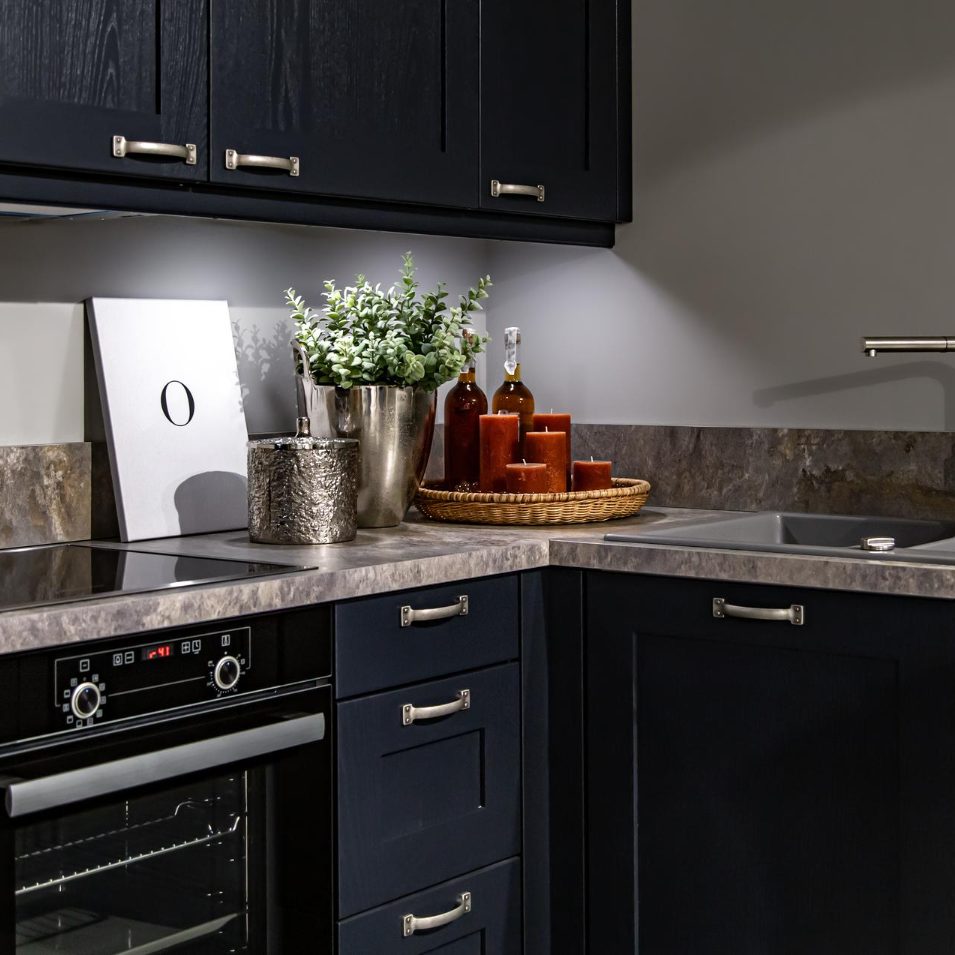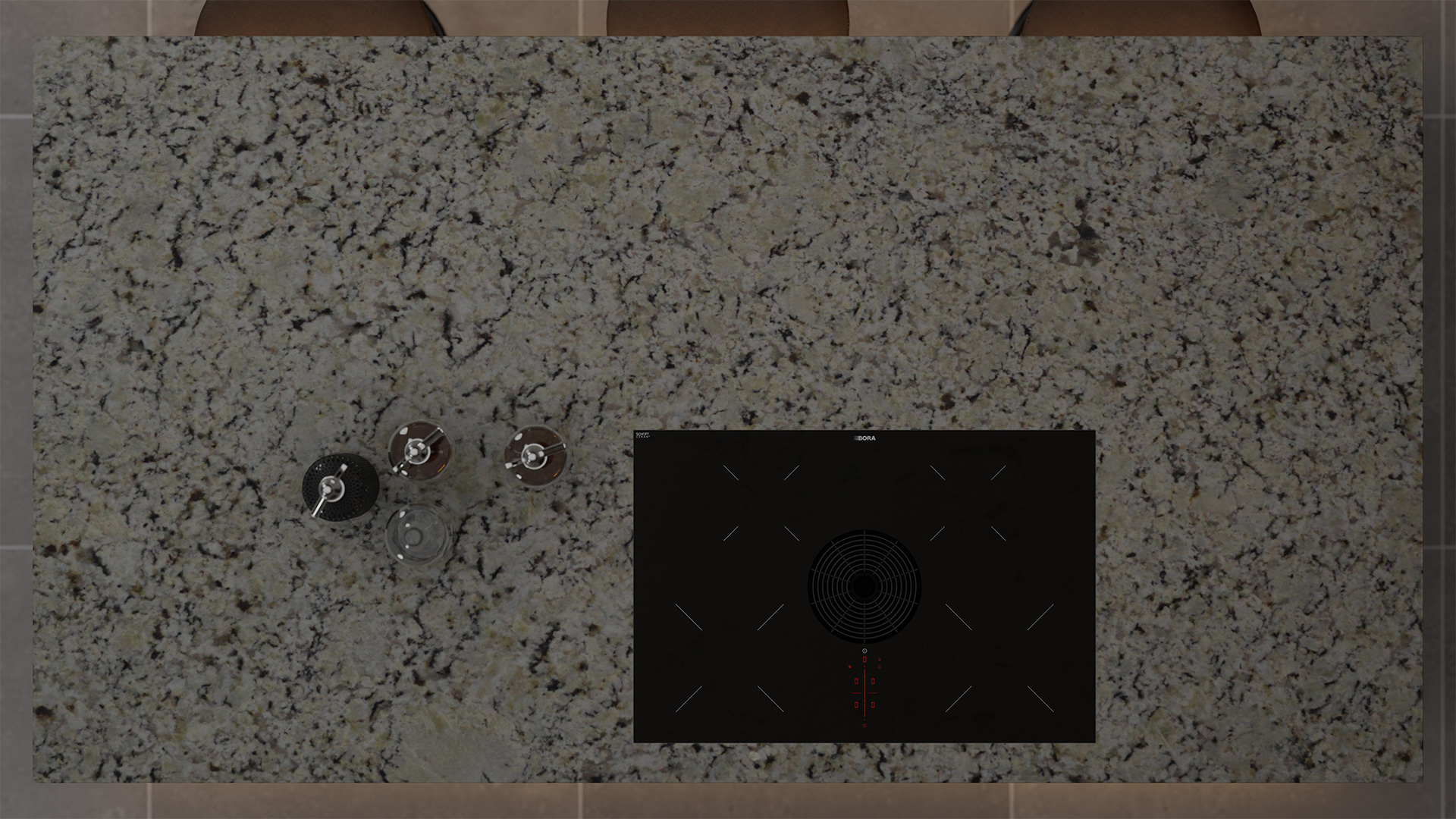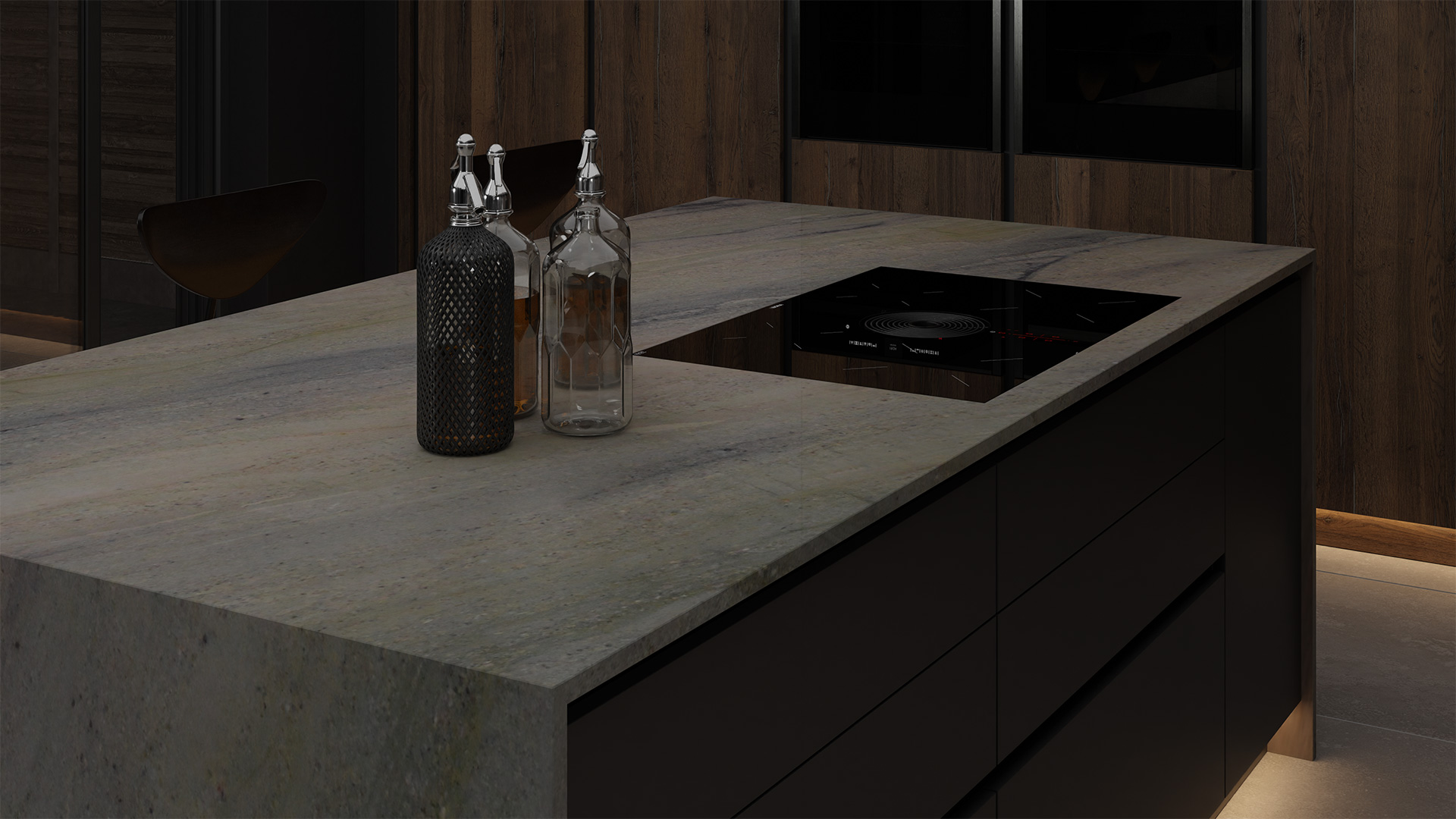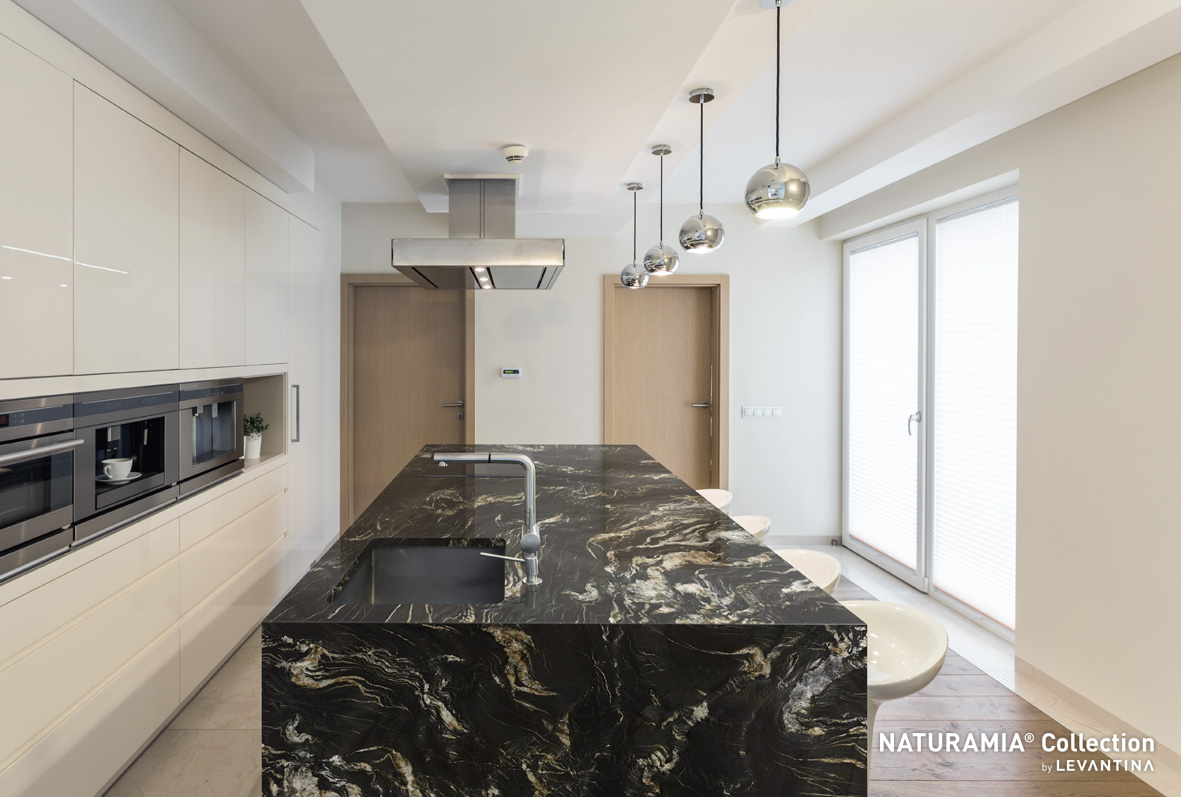Granite Kitchen Worktops : Pros & Cons
Granite Worktops
Granite Kitchen Worktops: Pros & Cons
Granite kitchen worktops have been a popular choice for homeowners seeking durability and elegance. However, before making a decision, it’s essential to understand both the pros and cons of granite kitchen worktops. This article explores the key advantages and disadvantages to help you choose the best worktop for your kitchen.
In this guide:
- What is Granite?
- Pros of Granite worktops
- Cons of Granite worktops
- Is Granite Right For Your Kitchen
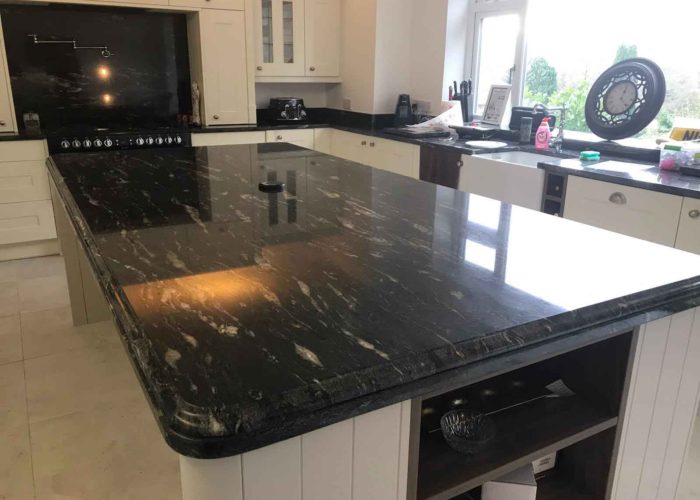
What is Granite?
Granite, an igneous rock composed of a mixture of quartz, feldspar, and mica, is a product of the slow crystallisation of magma beneath the Earth’s surface. Its distinctive characteristics make it a great choice for kitchen countertops, where strength and beauty are essential considerations.
The Pros of Granite Kitchen Worktops
Granite worktops are highly praised for their strength, beauty, and long-lasting qualities. Let’s dive into the main advantages:
Durability and Longevity
Granite is renowned for its toughness. It’s heat-resistant, scratch-resistant, and able to withstand heavy impacts without sustaining major damage. This makes it ideal for a busy kitchen where there’s constant chopping, cooking, and cleaning. Granite can last a lifetime with proper care, making it a sound investment for homeowners.
Aesthetic Appeal
Granite is one of the most visually stunning materials available. It comes in a wide range of colors, from earthy tones to bold hues, and features intricate patterns that give each slab a unique look. Whether you prefer a subtle design or a more dramatic effect, granite can complement any kitchen style, adding a touch of sophistication and elegance.
Easy Maintenance
Maintaining granite countertops is relatively easy compared to other materials. While it’s important to clean spills quickly, granite is naturally resistant to stains and bacteria. A mild soap and water solution is usually sufficient for cleaning, and you don’t need to worry about frequent polishing. However, do keep in mind that granite may require resealing every few years to maintain its protective layer.
Increased Property Value
Since granite is considered a premium material, having it in your kitchen can increase the overall value of your home. Many homebuyers view granite as a desirable feature, so investing in granite worktops may be a smart move if you’re looking to sell in the future.
Disadvantages of Granite Kitchen Worktops
High Maintenance Requirements
One of the drawbacks of granite worktops is their maintenance needs. Since granite is porous, it requires regular sealing to prevent stains and water absorption. If not sealed properly, granite can be more prone to staining and bacterial growth. For homeowners looking for a low-maintenance option, this might be a significant downside.
Cost
Granite worktops are generally more expensive than other materials. Granite worktops prices can vary depending on the quality of the stone, thickness, and complexity of the installation. If you’re working with a tight budget, granite may not be the most affordable option, especially when compared to materials like laminate worktops or quartz worktops.
Weight and Installation Challenges
Granite is a heavy material, which can make installation more complex and costly. It may require additional structural support to ensure stability. The weight of granite kitchen worktops means that professional installation is often necessary, adding to the overall expense of the project.
FAQs About Granite Kitchen Worktops
How long do granite kitchen worktops last?
Granite worktops can last a lifetime if maintained properly. Their durability and resistance to scratches, heat, and stains make them an excellent long-term investment for your kitchen. Regular sealing is required to prevent staining, but with proper care, granite surfaces can remain beautiful and functional for decades.
Are granite worktops easy to maintain?
While granite is a durable material, it requires some maintenance. Granite is porous, so it needs to be sealed regularly to prevent water and stains from penetrating the surface. Cleaning with a mild detergent and soft cloth is recommended. Avoid harsh chemicals to protect the surface.
Can I put hot pans on granite worktops?
Yes, granite worktops are heat-resistant, meaning you can place hot pots, pans, or baking trays directly on the surface without damaging it. However, it’s still advisable to use trivets or heat pads for prolonged exposure to high temperatures, especially in specific areas, to maintain the worktop’s appearance.
How much do granite kitchen worktops cost?
The cost of granite kitchen worktops can vary depending on factors such as the type of granite, the size of the worktop, and the complexity of the installation. On average, granite worktops can cost between £200 to £600 per square meter, including installation. However, premium granite can be more expensive.
Are granite worktops safe for food preparation?
Yes, granite worktops are safe for food preparation. They are non-porous when properly sealed, making it difficult for bacteria or germs to thrive. Granite is a hygienic surface, and with regular cleaning and sealing, it remains a safe and sanitary choice for food preparation.
How do granite kitchen worktops compare to quartz worktops?
Both granite and quartz worktops offer durability and aesthetic appeal, but they differ in maintenance and price. Granite is a natural stone that requires sealing to maintain its resistance to stains, while quartz is engineered and non-porous, needing less maintenance. Quartz may be more affordable, but granite offers a more natural and unique look.
Can granite worktops be repaired if damaged?
Yes, granite worktops can be repaired if damaged. Minor chips and cracks can be filled with resin or epoxy by professionals. However, deep cracks or significant damage may require replacing the section of the worktop. It’s essential to address any damage early to avoid further issues.
Do granite worktops stain easily?
Granite is resistant to staining, but it can still absorb liquids if not sealed properly. Regular sealing will help prevent stains from penetrating the surface. Some substances, like red wine or oils, can stain granite if left on the surface for extended periods, so it’s important to clean spills promptly.
How do I clean granite kitchen worktops?
To clean granite kitchen worktops, simply use a mild dish soap mixed with warm water. Wipe down the surface with a soft cloth or sponge. Avoid abrasive cleaning pads or harsh chemicals, as they can damage the surface. For extra protection, use a granite-specific cleaner occasionally.
Can I install granite kitchen worktops myself?
Installing granite kitchen worktops is a complex process that requires professional expertise due to the material’s weight and the need for precise cuts. It is highly recommended to hire a professional installer to ensure the worktops are properly fitted and securely installed.
